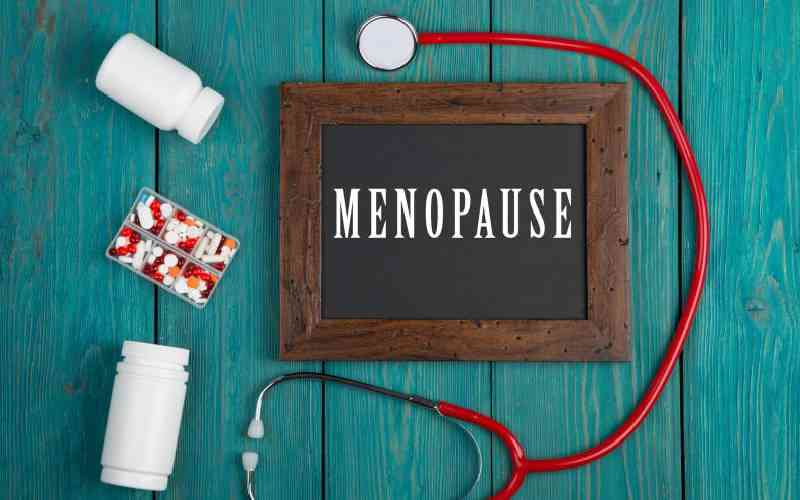
After 20 years of visiting Africa and working with its leaders, I was not surprised to see African solutions to Africa's challenges-with women among the talented people behind those solutions.
I visited Senegal and Rwanda in June-my first trip to the continent since the pandemic began and encountered examples of African-born innovation: A business turning discarded tyres from mosquito breeding grounds into the base for synthetic turf and fuel for cement plants and a rural university training the next generation of global health professionals.
Two women in their 20s created E-cover, the Dakar-based tyre upcycler while women make 70 percent of the students at the University of Global Health Equity in Butaro, Rwanda. In Senegal, half the staff at Institut Pasteur de Dakar, a renowned research institution and vaccine and diagnostic manufacturer, are women helping scientists develop cutting-edge vaccines and treatments for infectious diseases.
These women are playing an important role in Africa's bright future.
But to get there, most had to persevere economic hardships, unequal distribution of care giving responsibilities, and a pervasive cultural norm that women belong in the home. Yet, healthy, empowered women contribute to improved health equity, technological advances and stronger financial futures for all.
The World Bank estimates that if women had the opportunity to earn as much as men, total global wealth would increase by 14 percent.
Achieving gender equality is a global challenge-especially since the pandemic exacerbated the gender gap-and a global opportunity. We've learned a lot at the Gates Foundation about what is possible when women have an equal chance to fulfill their potential.
Here are some areas where actions can make a big difference:
Quality health care: When women can access quality medical care and make their own choices about health and family planning; they are healthier, more productive and so are their families (including men) and communities.
Take the call centre at Babyl Rwanda, great example of an organisation that ensures women are not left behind from providing about 3,000 telehealth appointments. Its medical care by phone is a transformative approach especially for rural women.
When Babyl Rwanda realized women had trouble making appointments because Babyl accounts were linked to mobile phones belonging to their husbands, they began identifying patients via National IDs instead. Multiple people could then access appointments on the same phone, doubling the number of women using the service.
Support for women-owned businesses: A World Bank study in 10 African countries found that companies owned by men had six times the capital investment as companies owned by women. In Senegal, even though 31 percent of businesses are owned by women, they only have access to 3.5 percent of available capital. Women are more likely than men to lack collateral and face both gender bias and a high cost for capital.
Because Thiaba Camara Sy founded WIC Capital, which exclusively funds women-led companies, several women entrepreneurs in Africa-including Yaye Souadou Fall and Khady Diallo, the tyre upcyclers-have been able to close this gap, employ hundreds and bring much-needed products to market. Imagine the breakthroughs if governments and financial institutions invested more in the transformative power of women entrepreneurs?
Accessible child care: Several of the women I met at Institut Pasteur de Dakar (IPD) told me they can work only because they found child care. Many don't have that option. A lack of accessible, affordable child care is not just a logistical challenge for families-it's a huge missed economic opportunity for their countries. According to the International Labor Organisation (ILO), comprehensive care policies would increase employment across Africa by nearly 11 percent for women, and eight percent overall-because child care benefits men, too.
IPD is on the verge of becoming Africa's first high-volume site for the production of vaccines, including for Covid. Their progress depends in large part on women scientists' ability to contribute. So while the innovation at IPD's labs is exciting, the child care centre being built may be just as important.
There's another change-a profound one-that would enable Africa to maintain, and even accelerate, its momentum. Nearly all the women I spoke with told me now they hear the same messages all the time: "Don't soar too high or you'll never get married."
Certainly this is not solely an African problem as in the United States women hear some version of these messages too. There's no easy way to change mindsets. But the first step is to understand what difference it makes when you do.
In Senegal I met Binta Diao, who at 14 was forced to marry a man almost twice her age. In her 20s she began taking classes at Tostan, an organization that provides courses on human rights, democracy, health, and economics. Women from Tostan's trainings are shifting cultural norms-and showing husbands that when women earn, men benefit too. Binta began selling vegetables, then cow's milk, and now she's a successful radio host on maternal and newborn health and women empowerment through business.
"Before, I was just an ordinary woman," Binta told me. "I was minimised." Now when she speaks, people listen.
Thanks to efforts like hers, more communities are changing their views of women-and beginning to prosper as part of unlocking extraordinary progress for all.
The writer is co-chair, Bill and Melinda Gates Foundation
 The Standard Group Plc is a multi-media organization with investments in media
platforms spanning newspaper print
operations, television, radio broadcasting, digital and online services. The
Standard Group is recognized as a
leading multi-media house in Kenya with a key influence in matters of national
and international interest.
The Standard Group Plc is a multi-media organization with investments in media
platforms spanning newspaper print
operations, television, radio broadcasting, digital and online services. The
Standard Group is recognized as a
leading multi-media house in Kenya with a key influence in matters of national
and international interest.











